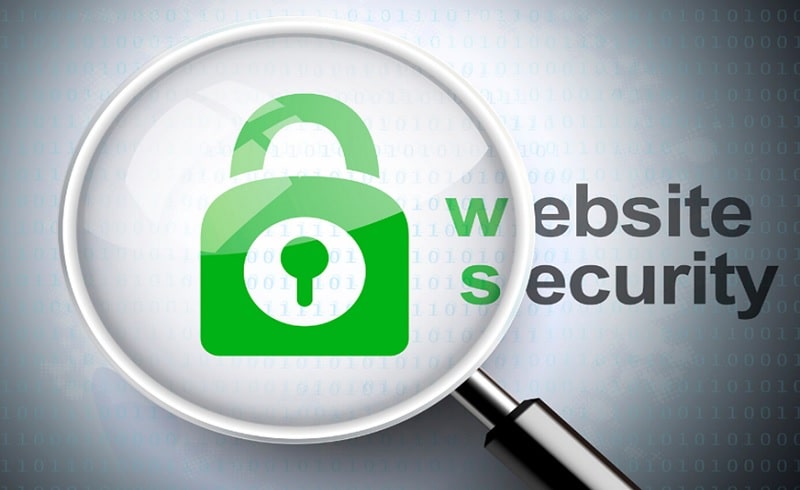Best Ways to Secure Your eCommerce Website

TechsPlace | Starting an eCommerce business can be exciting. You can design and build your eCommerce website, choose what you want to sell, get to talk to your suppliers, create promotional activities and get to do a lot more that you get to experience for the first time. While it is fun and exciting to build your site, sometimes, amidst the excitement, you tend to forget one crucial step in your eCommerce business. That is to protect your eCommerce website and secure your eCommerce Website.
It is common for small business owners to put cybersecurity on the last part of their list, thinking that they are not susceptible to any attacks. However, studies show otherwise. In recent years, cybersecurity experts noted that cybercriminals and hackers target small businesses more than established companies. These happen because most smaller eCommerce businesses are often too lax and complacent when it comes to website security.
You do not have to wait for any attack to happen before you start to protect your eCommerce website. But how would you protect your site? Here are ways you can keep these cybercriminals at bay as well as some frequent attacks that you might encounter.
Types of Attack You Might Encounter With Your eCommerce Website
- SQL Injections
All websites need Structure Query Language or SQL to function. These codes access databases and execute commands.
However, hackers can target this software. This type of attack is called SQL injection and popular on websites. In an SQL injection attack, an attacker uses commands to gain access to the system where sensitive information is kept.
- Malware
Perhaps the most popular form of attacks, Malware, has been inflicting many damages on websites in recent years. Its army of suspicious inflicting viruses includes ransomware, worms, trojan horse, and a lot more. These cybersecurity threats can steal any information from your site, erase private and confidential data, infect your website visitors, and even hold your most essential data hostages.
- DOS and DDoS
These attacks are the most annoying cyber-attacks you will ever encounter. DOS and DDoS can attack your website by flooding it with illegitimate traffic. This situation can make your eCommerce website unresponsive and eventually crash. At this point, your audience and visitors will have a hard time gaining access to your site.
- Cross-Site Scripting or XSS
Cross-site scripting is a type of attack that is most harmful and effective to eCommerce web pages that allow user comments or any user input. When you experience an XSS attack, your interface can change, or your visitors can be redirected to another site instead.
How To Secure Your eCommerce Website
- Get Your Site A Secure Web Host and Platform
To start, the first thing you need to do and probably an essential thing you can do for your site is to get a secured platform and web host. There are many eCommerce solutions available in the online market these days. However, you need to choose that web host and platform that gives optimum protection.
One of the significant components and should be your deciding factor when looking for a web host and platform is that it operates 24/7. It should also come with excellent customer service and technical support. It is crucial to get in touch with them immediately if there is something on your site beyond your control.
- Leave Payment Platforms To The Experts
An essential part of having an eCommerce website has an online payment platform. It has already become a must and necessary to make your eCommerce site a success.
While you need a payment platform to incorporate in your site, you cannot do it yourself. With all the things you have to deal with your website like keeping your site update, making sure it meets your customers’ expectations or providing a positive experience, you do not want additional burden on your back.
Instead of stressing yourself creating another program for your payment services, you can leverage on a third party platform instead. Trusted payment services also come with its security that can help with your security practices.
- Do Not Forget HTTPS
Whether you are looking for the next vacation site or your search for a particular location, accessing a website with a closed lock icon on the browser address bar is the safest thing.
As an eCommerce website owner, it is vital to that have that lock icon in your URL. Aside from being an online protocol, HyperText Transfer Protocol Secure or HTTPS is one of the easiest ways to keep your site secured. It will also help with your SEO efforts as search engines highly favor those sites secured with an SSL certificate.
- Practice Good Password Hygiene
While it is essential that you keep your site fully secured, there can still be a weak point that can be accessed by cybercriminals. Your users can become your weakest link should they settle for an insecure password when they register to your site. To avoid this, require complex passwords on your website upon registration. As much as possible, do a two-factor authentication or 2FA from your users and customers.
- Keep Your eCommerce Site Updated
Your website can develop vulnerabilities over time. These vulnerabilities can become a week spot in your eCommerce site and can be a possible entry point of cybercriminals. Keep your site secured and free from these vulnerabilities, by keeping it updated as developers include crucial security patches for every update they create.
- Avoid Storing Sensitive Data
Hackers and cybercriminals cannot steal something which is not even there. So, avoid sending the most dreaded email to tell your customers that their data has been compromised on your eCommerce site, avoid storing their most sensitive data on your end. While you need your customer information, do not be tempted to store credentials more than necessary.
- Always Have Regular Back-ups
Doing regular backups may not keep from being attacked, nor do you keep your attackers far from you as possible, but it is essential to minimize the damage.
When hackers and cybercriminals infiltrate your system and steal your data on your site, they can hold it hostage and ask for a large amount of money. Having a backup can help you recuperate from the blow of an attack and remove you from any attacker’s mercy. Find a good and reliable web host server that offers backups as a built-in feature.
- Have A Firewall Protection
An excellent way to protect your site from any possible threat is having a website application firewall or WAF. This method can be an effective way to combat an SQL injection, forgery request, XSS, and other hacking attempts on your eCommerce site. Adding WAF on your website can help minimize DoS or DDoS attacks.
- Do regular SQL checks
SQL is an essential part of your website. However, this can be a place to start an attack. Do regular checks on your SQL for any possible SQL injections. Doing this will help secure your eCommerce website and keep it secured. You can also leverage software options on the market today that can keep track of these vulnerabilities.
Final Thoughts
When you have finally build your eCommerce business, you should not wait to experience any attack before you start to secure your eCommerce website. You do it at the start, as no one can predict when it will happen. Keep your website secured and take all the security precautions you can do. Be alert, and always be mindful of any possible attack.
Ramon has been writing about technology trends, entertainment, and gaming ever since he left the busy world of corporate HR Tech behind. He currently writes about software and user experiences for Softvire Australia -the leading software e-Commerce company in Australia and Softvire New Zealand. In his spare time, Ramon writes science fiction, collects little yellow men and plastic spaceships.





